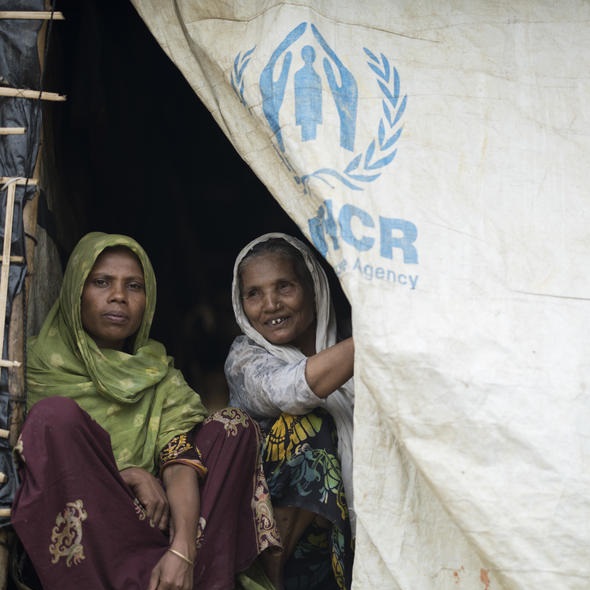Profiling Internally Displaced Persons of the Marawi Conflict
Philippines, 2018
Get MicrodataIdentification
UNHCR_PHL_2018_MarawiIDP
Profiling Internally Displaced Persons of the Marawi Conflict
| Name | Country code |
|---|---|
| Philippines | PHL |
Other Household Survey [hh/oth]
This report presents the findings of the profiling activities conducted from June to August 2018 in communities hosting internally displaced persons (IDPs) of the Marawi conflict and return communities in the provinces of Lanao del Sur, Lanao del Norte, Misamis Oriental and Bukidnon. Data was collected through structured interviews with IDP households using the kobo™ tool. Primary respondents were heads of households and in their absence, any person of legal age in the family. A total of 34,785 heads of households were interviewed in the profiling activity, representing 97,126 IDPs in 56 municipalities and 3 cities.
This report presents data on demographic makeup of the IDPs such as age, sex, number of households, and family size, as well as protection information relating to displacement location, place of origin, resettlement, integration; various vulnerabilities of persons with special needs; educational attainment; income livelihood and skills; access to assistance; access to information; civil documentation; property ownership; intent to return; access to information, assistance received, and sources of assistance. Special focus is given on children and women in separate sections of this report.
A significant number of IDPs continue to experience gaps in assistance related to health, education, shelter and long-term livelihood support. Also, IDPs continue to experience protection risks due to lack of civil documentation due to loss or destruction of birth certificates. A more nuanced and targeted approach that will address specific protection needs of IDPs is needed.
Census/enumeration data [cen]
Households, individuals.
Version
2.1: Edited, anonymous dataset for licensed distribution
2020-09-05
Scope
Basic demographics
- Current Location
- Place of origin
- Displacement status
Respondent's profile
Access to identification
Access to government programmes
Access to assistance
Access to information
Access to livelihood
| Topic |
|---|
| Basic Needs |
| Elderly and Disabled |
| Settlement |
| Income Generation |
| Legal Assistance/Protection |
| Housing, Land and Property |
| Peace Building/Conflict Prevention Sector |
| Education |
| Community Services |
Coverage
Field data collection was conducted in 4 provinces namely: Lanao del Sur, Lanao del Norte, Misamis Oriental and Bukidnon
All IDPs listed in the government's IDP database for Marawi.
Producers and sponsors
| Name |
|---|
| UNHCR |
Sampling
The IDP Profiling reached a total of 97,126 individuals in 34,785 households. This accounts for 45.08% of the baseline IDP population of 77,170 households listed in the government's IDP database for Marawi. There was no sampling procedure.
Weight was calculated dividing the total number of refugee households in the surveyed area, according to available data, by the
number of households in the dataset.
Survey instrument
Basic demographics
- Current Location
- Place of origin
- Displacement status
Respondent's profile
Access to identification
Access to government programmes
Access to assistance
Access to information
Access to livelihood
Data collection
| Start | End | Cycle |
|---|---|---|
| 2018-06-04 | 2018-06-14 | 1 |
| 2018-08-01 | 2018-08-10 | 2 |
| Name |
|---|
| UNHCR |
Volunteers used the kobo application2 for the encoding of the answers given by the IDPs. The application allows for offline use and saving of data, which facilitated the profiling, since most of the areas profiled do not have reliable internet or mobile data signal. After the fieldwork, volunteers were given time to transmit the data on their phones, some of whom had to go to the UNHCR Iligan office to do so.
Data processing
Data cleaning was done up to three weeks after the activity, where the IM team verified with the volunteer's names of barangays and various other issues that led to inconsistency in the data.
Data Access
| Name | Affiliation | |
|---|---|---|
| Curation Team | UNHCR | microdata@unhcr.org |
| Lespeth Alaban | UNHCR | alaban@unhcr.org |
UNHCR (2018) Profiling Internally Displaced Persons of the Marawi Conflict. UNHCR Microdata Library: https://microdata.unhcr.org
Metadata production
UNHCR_PHL_2018_MarawiIDP
| Name | Affiliation |
|---|---|
| The Curation Team | UNHCR |
2020-09-08
